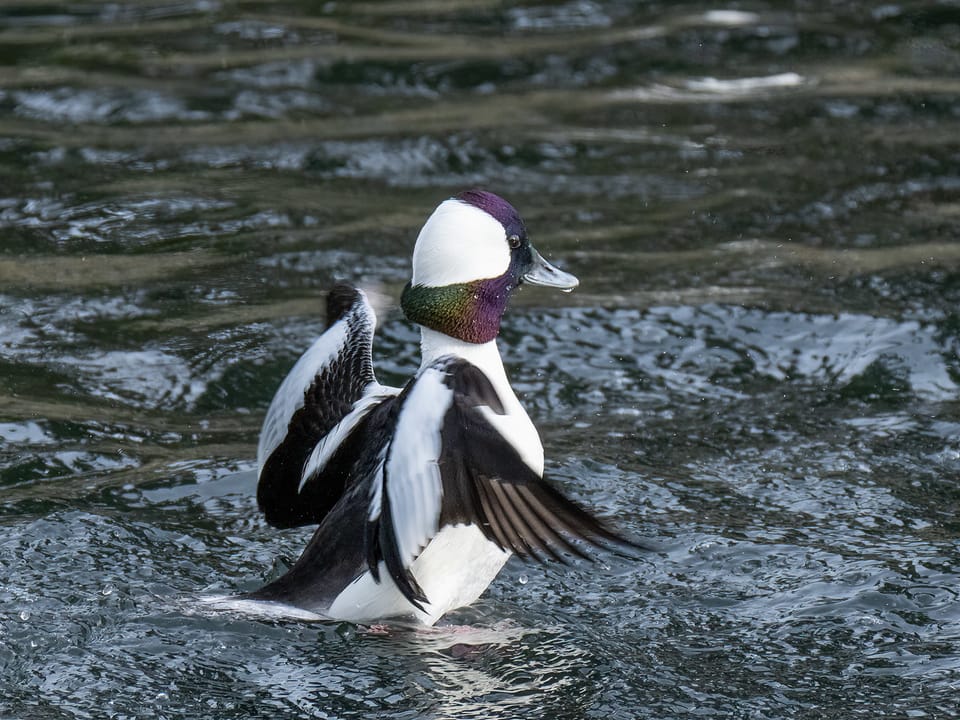EcoWest News, December 3, 2024

Welcome to EcoWest News, a weekly round-up of news and resources that you can put to use in addressing environmental issues and protecting the wild in your community.
Across the West
The Medzih Story: Restoring a Caribou Landscape documents the work undertaken by Fort Nelson First Nation to restore the land and protect the caribou. [free online, 20 minutes, Fort Nelson First Nation]
A Senate report emphasizes the need to ensure Vancouver International Airport and the Port of Vancouver are resilient and able to handle extreme weather caused by climate change. [The Narwhal]
There are alternatives to spraying pesticides. TC Energy could use goats, weed whacking, and planting native species along the path of the Coastal Gas pipeline. [The Narwhal]
Federal funding will lay the groundwork for an ecological corridor protecting wildlife habitat and water quality along the Little Saskatchewan River from Riding Mountain National Park to the Assiniboine River in Manitoba. [The Narwhal]
Across Canada
With green hydrogen proving too expensive for European markets, a Newfoundland company is considering switching to the establishment of a data centre powered by wind. [The Energy Mix]
Protecting 5% of Canada’s watersheds could help safeguard more than half the country’s urban areas at risk of downstream flooding. Parts of Manitoba and central Alberta are at higher risk than most should natural ecosystems disappear. [Richmond News]
Despite Canada’s commitments to reducing emissions at home, gas emissions from Canada’s exported oil, gas, and coal increased by 58% from 2012 to 2023. [Ecojustice]
Around the World
Planning a cruise in 2025? Friends of the Earth has rated 21 cruise lines on their environmental performance. Only a handful get a reasonably good rating. [FOE]
Plastic Pollution
Petroleum-producing countries are fighting attempts to limit plastic, which is made with petroleum along with more than 16,000 different chemicals. Only 6% of those chemicals are subject to international regulation, and 4,200 are hazardous “chemicals of concern”. [The Verge]
The Plastic People documentary, uncovering the impact of microplastics on human health, is available for local screenings. [Plastic People]
Making a Difference
Strong community ties can be of tremendous assistance when there’s a climate-related disaster. Some programs in BC are helping to forge strong, connected neighbourhoods. [The Narwhal]
DIY
Tips to help you identify the best opportunities and obtain funding for bird-safe retrofits for residential and commercial buildings. [FLAP]
The words we use both reflect and influence our attitudes and beliefs about other-than-human nature. We talk about fisheries not fish and forestry in place of trees. We use violent idioms – “to kill two birds with one stone” – rather than more benign expressions, such as “to feed two birds with one nut.” [Global Rewilding]
Conservation
Marine wildlife crime and illegal fishing are harming cornerstone species such as the sea cucumber, “the earthworm of the sea,” that are “critical for marine conservation [and] for the health of ecosystems.” [Martlet]
When species are threatened with extinction, conservation organizations focus on restoration, failing to look further down the road and prepare for success. The return of wolves to Washington State is a conservation success story but not one well received by ranchers. [Conservation Works]
Nature’s Wonders
Prairies are incredible, complex, and beautiful ecosystems. Let’s highlight species that people can see in almost any prairie – red-winged blackbirds, black-eyed susans, grasshoppers, and katydids. [The Prairie Ecologist]
Australia has chosen an insect of the year, a vividly coloured native bee. What Canadian insect would get your vote if Canada held a similar competition? [ABC]
Landscape Photographer of the Year award winners showcase the earth’s beauty. [DP Review]
Photo credit: https://www.flickr.com/photos/apmckinlay/51974491313
EcoFriendly West informs and encourages initiatives that support Western Canada’s natural environment through its online publication and the Nature Companion website/app. Like us on Facebook, follow us on BlueSky, X, and Mastodon, or subscribe by email.

Member discussion